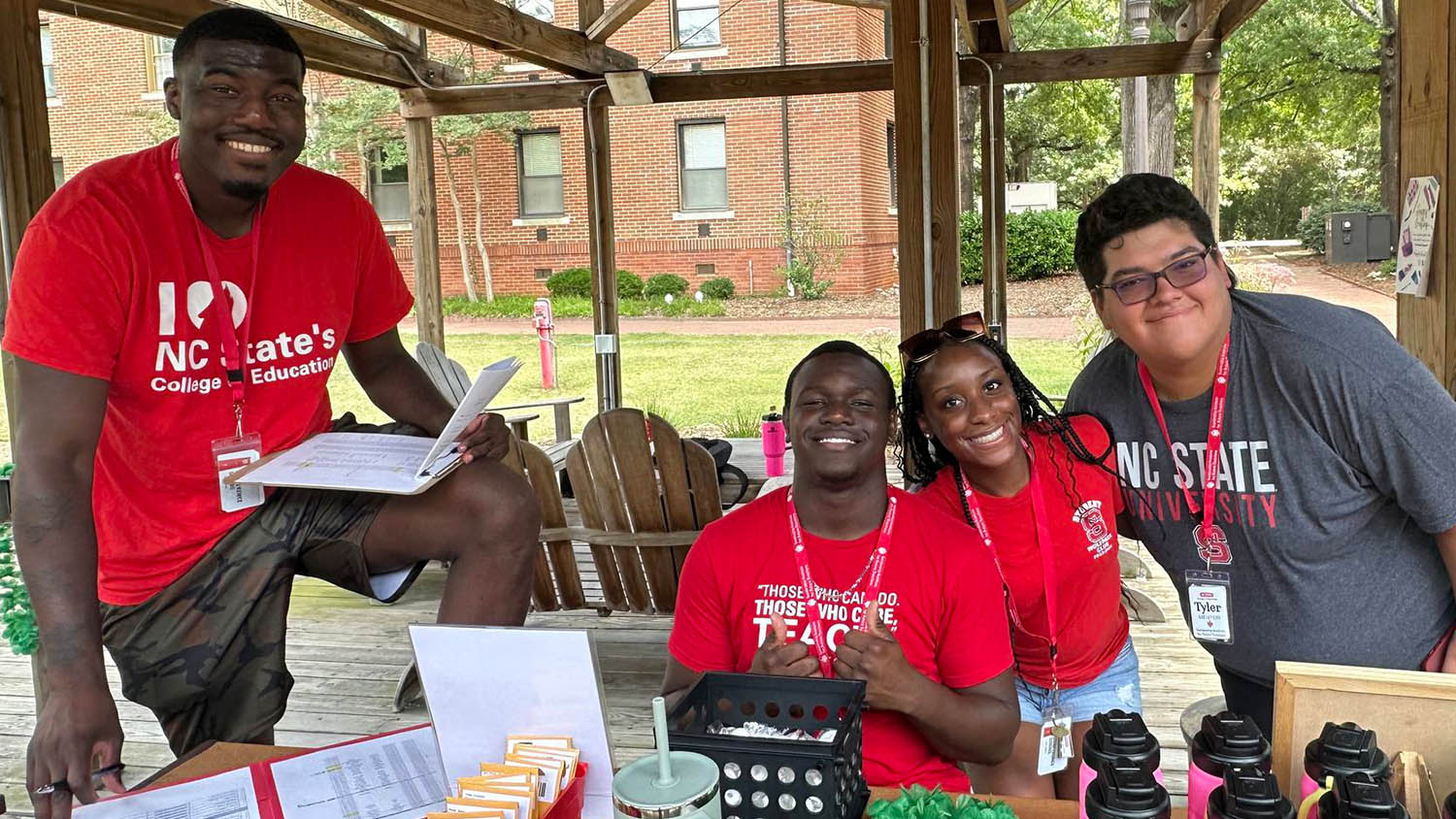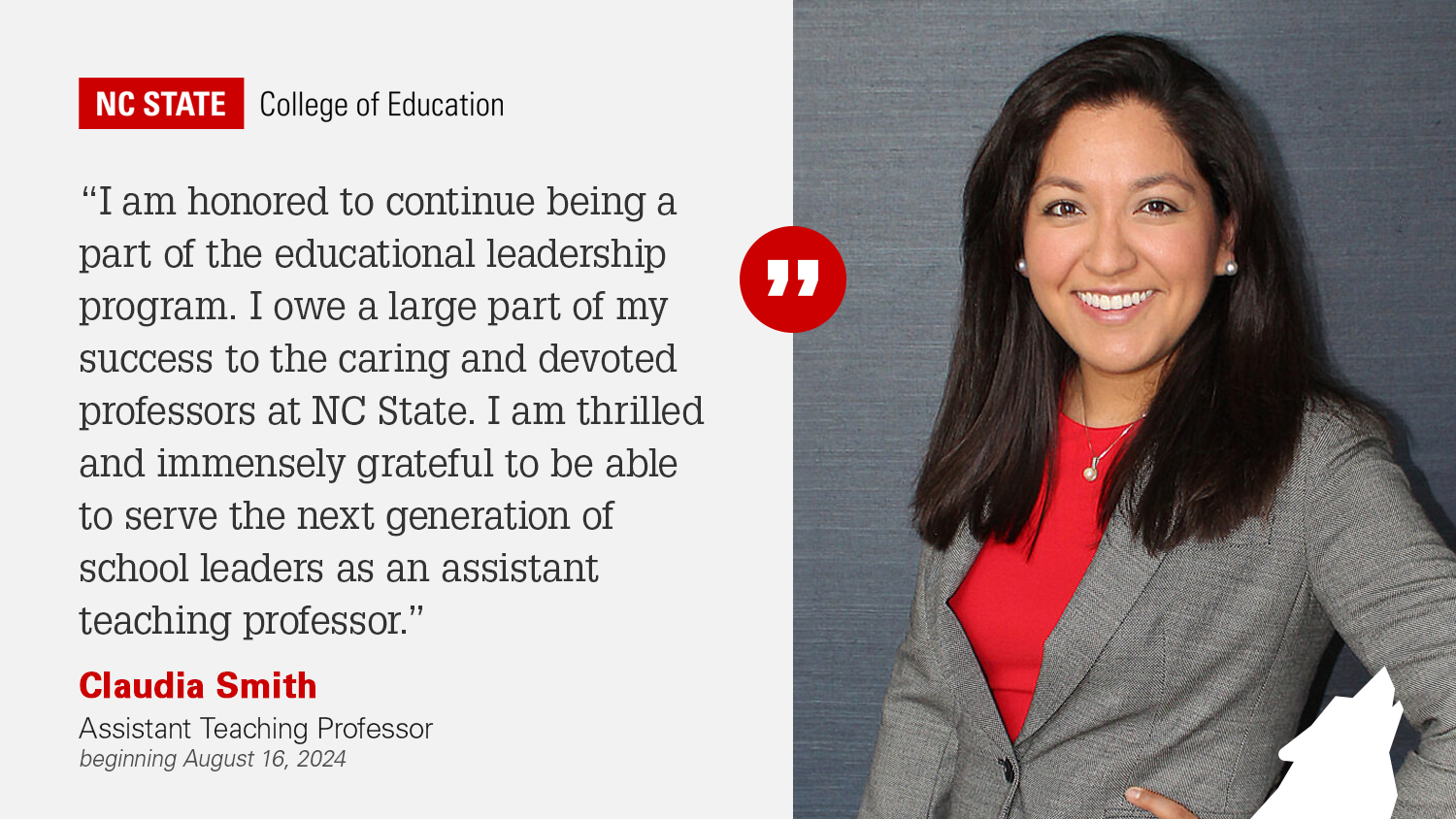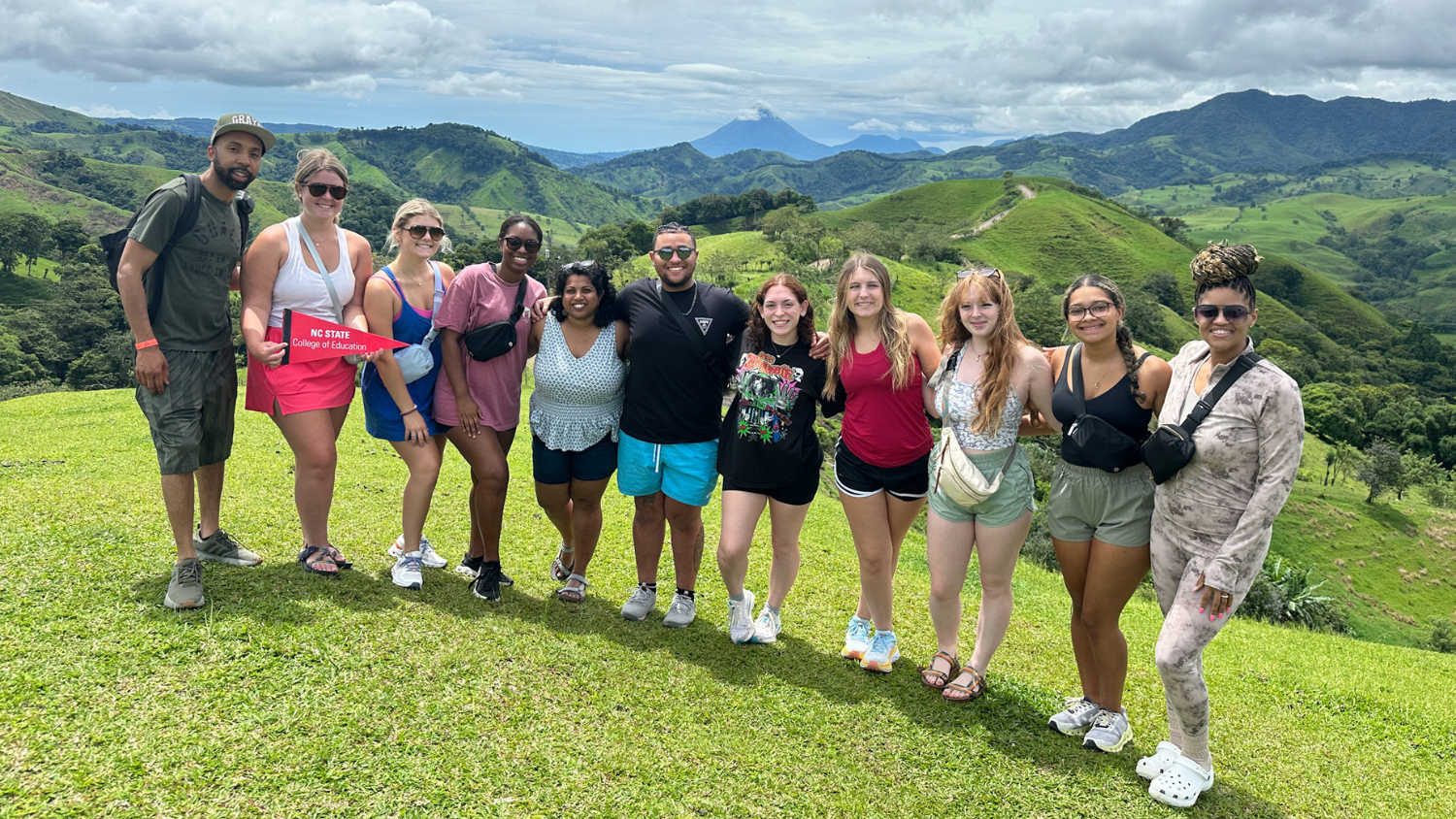SAY Village Students Provide Virtual 1-on-1 Support to Mentees, Education Advisors Host Digital Programs During Coronavirus (COVID-19) Outbreak

Though the coronavirus (COVID-19) pandemic has forced schools to move to online instruction and has made physical, face-to-face interaction difficult, students from the NC State College of Education’s Students Advocating for Youth (SAY) Village are finding ways to support their mentees and each other.
Each week, villagers reach out to their student partner or mentee through email. Letters, both written and video, are submitted every Tuesday to the SAY Village leaders, who send them to the school counselors at each partner school. The counselors then email the mentees individually. If the student chooses to respond to their SAY advocate, they email the SAY leaders directly and their message is sent to their mentor.
“It is an important way for both our students and the younger student partners to continue to set goals, feel less isolated, work on challenges that they can control and maintain friendships,” said Robin McWilliams, director of SAY Village and Community Youth Partnerships.
Hannah Lee, a sophomore middle grades mathematics education major and second-year villager, has enjoyed connecting with her mentee. They’ve communicated through email and Zoom, which has allowed them to continue their relationship and offer support from a distance.
“I feel it is important to continue our connection because with everything changing, I want to at least make her feel like I am still there for her. My mentee has a tough home life and I am so glad that I get to continue to be an advocate for her when she needs it the most,” Lee said.
Aside from the villagers, education advisers have been reaching out to village members regularly. The six students who serve as education advisers have been hosting virtual programs around youth advocacy from a new lens of shelter-in-place, learning at home with one’s family and fun social gatherings such as making facemasks and nail painting.
“We’ve talked about the things that this team has struggled with since being home and turned them into opportunities to continue connecting with our village. These mentors have really done a lot of work to keep our village connected from afar,” said Lindsey Hubbard, assistant director of Students Advocating for Youth.
Some education advisors have hosted Zoom office hours to allow their advisees to just pop in and do home together, a similar activity to their normal lounge experience in Syme Hall.
SAY Village is a living and learning village that connects NC State University students with underserved K-12 students in the Wake County Public School System (WCPSS) for after-school mentoring. First-year students serve at one of four partner elementary schools, while second-year students serve at Reedy Creek Middle School.
“Having a continued connection between advocates and student partners is vital during this unprecedented time. Many of our WCPSS student partners lack vital home resources as compared to their peers and have struggled with trust and abandonment issues,” McWilliams said. “Every year, we see the trust and bonds that form between SAY participants. It is crucial that we fulfill that role in this year when our time together has been cut short.”
- Categories:


